Iran’s Export Of Engineering Services Reduced To $500m
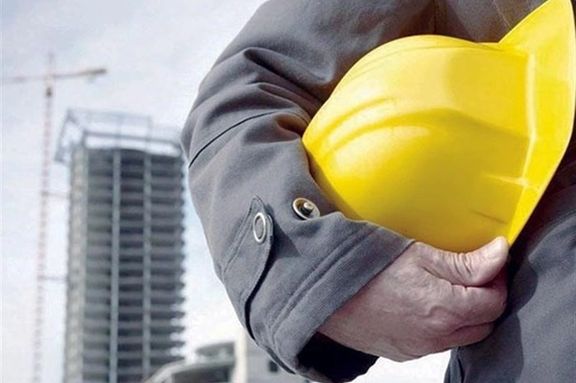
Iran’s export of technical and engineering services has declined to about $500 million from the figure of $5 billion about 10 years ago, an official says.

Iran’s export of technical and engineering services has declined to about $500 million from the figure of $5 billion about 10 years ago, an official says.
The head of the Iranian Association of Exporters of Technical and Engineering Services, Bahman Salehi-Javid, said on Sunday that the exports reached $5billion dollars in 2010 and was projected to reach $35 billion dollars, but "today it has decreased to $500 million.”
He added that the Islamic Republic invested heavily in Syria’s financial, engineering, and military sectors but "did not manage to participate in the projects of this country as much as it had invested,” leading to losses by many Iranian contracting companies in the country.
Salehi-Javid also said there is a $800-million debt to Iranian companies for different projects in Iraq.
In the last two years, numerous reports have been published about Iran's losses and debts in Syria and Iraq, where Iran tried to expand its political and military presence by offering free or cheap services and goods.
Earlier in September, the head of the Trade Promotion Organization of Iran, Alireza Payman-Pak, said that export of technical and engineering services in the current Iranian year (which started on March 21) registered a 31-percent growth as compared to the same period of last year without providing any figures for his claim.
In January, the head of Tehran Chamber of Commerce, Masoud Khansari, said Iran’s export of technical and engineering services has plummeted to about $200 to $300 million from about $5 to $6 billion in the past few years.
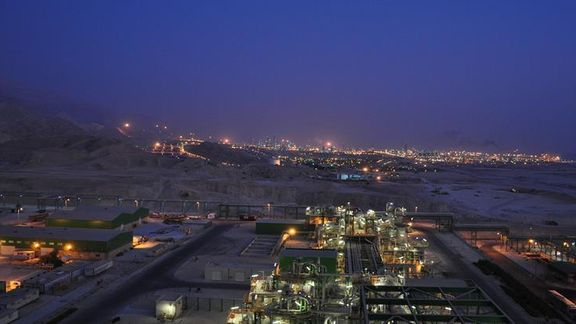
A $170 million apparent embezzlement case has left one of Iran’s natural gas producers in serious trouble and might reduce production at the onset of winter.
The issue of possible fraud or some sort of corruption is not straightforward as one might expect in a typical Western company. There are Iranian nuances in the case that makes it a bit different.
Mehr Petrochemicals produces the highest-grade polyethylene in the Middle East but it stands at the verge of bankruptcy, according to Eghtesad Online (Economy Online) a recognized website in Iran reporting on economic issue.
The firm belongs to Persian Gulf Holding, a large Iranian quasi-governmental company that claims to be an independent entity, with 15 subsidiaries.
Mehr Petrochemicals, as an Iranian company is supposed to repatriate its foreign currency earnings according to law, as it exports products and receives government dollars at preferential rates when it for importing equipment or chemicals. The problem is that it has failed to bring back $170 million to the country and apparently the money has simply vanished.
The Iranian Inspector General’s office has issued a report saying that Mehr owes close to $100 million locally and its export revenues are missing.
The danger in the company going bankrupt and shutting down is loss of gas output in the South Pars fields in the Persian Gulf, Iranian media say. Mehr plays a role in gas production because it needs it for producing petrochemicals.
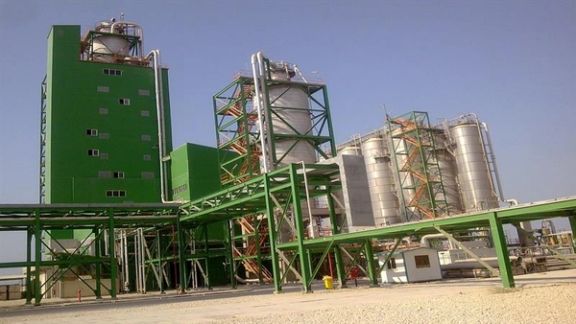
In the middle of the scandal stands a mysterious and unnamed foreign investor, reportedly a firm registered in Italy. The story goes back seventeen years, when Mehr Petrochemicals was established with a 60-percent foreign stake by a Japanese-Thai consortium, with some management rights over the company.
In 2018, in the wake of renewed economic sanctions by the United States, the foreign investor decided to divest of its stake in the company. It offered to sell its share to the Persian Gulf Holding for a certain price, which has not been disclosed. Iran appointed a commission to assess the value of the asset and it came back with a very low estimate that the foreign stakeholder refused.
At this point, the mysterious Italian company entered the picture and offered enough money to the Japanese-Thai consortium to buy their shares.
The whole affair of not buying the consortium’s shares and then agreeing to an Italian company, that according to Iranian media had no track record in the petrochemicals business, to buy 60 percent of Mehr is all shrouded in mystery and lack of transparency. This is common in Iran’s sprawling public and quasi-public sector that controls 80 percent of the economy.
Political and economic interests and spheres of influence are often so closely intertwined that it is impossible for the media and even members of parliament to demand and receive transparency.
The so-called Italian investor could well be a group of well-connected government and military officials who simply offered a very low price to the original foreign investor who bulked, and then set up a front company abroad and bought the 60-percent share themselves.
With Iran short of natural gas, local media warn of a worse situation this winter if Mehr Petrochemicals stops operations. There is already ongoing labor strikes and protests as many other petrochemical and oil outfits linked to the government delay salaries.
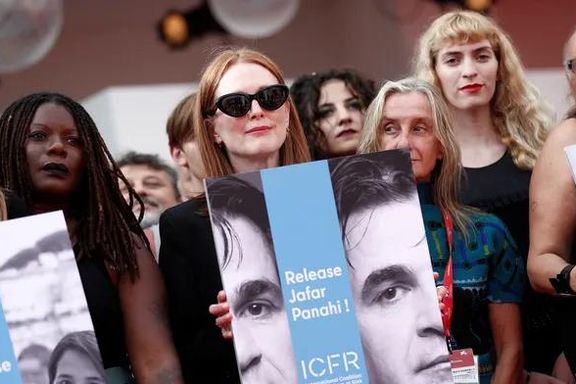
The Venice Film Festival awarded its Special Jury Prize to jailed director Jafar Panahi after participants called for the release of jailed Iranian filmmakers.
Panahi, one of Iran’s most acclaimed directors, who is currently serving a six-year prison sentence from a decade ago, received the awardfor his latest film ‘No Bears’. During the screening of the film Friday an empty chair stood for Panahi.
Directors, actors and activists attending the festival led by jury head Julianne Moore and Audrey Diwan gathered on the red carpet Friday and held up placards with Panahi’s face and the the message: “Release Jafar Panahi!” ahead of the Venice world premiere of his film.
The festival also awarded the Orizzonti (Horizons) Award for Best Film to Iranian director Houman Seyedi for “World War III”, and Orizzonti Best Actor Award to its lead actor Mohsen Tanabandeh. “World War III” is a dark comedy which tells the story of making a film about the Holocaust in Iran.
Panahi, who has also won the Golden Leopard at Locarno Festival, the Golden Lion in Venice, and the Silver Bear at the Berlinale in the past, was first arrested in 2009 for participating in anti-government protests and twice in 2010 and sentenced by a Revolutionary Court to six years in prison and a 20-year work ban but the prison sentence was suspended. since then, he has made his films, including ‘This Is Not A Film’ in 2011, stealthily in defiance of the ban.
He was arrested again last month for protesting the July 8 arrest of two other renowned filmmakers, Mohammad Rasoulof, director of Berlin Golden Bear winner There Is No Evil (2020), and Mostafa Al-e Ahmad (Poosteh) at Tehran’s Evin prison.
Rasoulof and Al-e Ahmad were arrested as part of the Iranian crackdown on the signatories of a collective statement titled “Lay down the gun” issued by more than 100 film industry personalities in the end of May.
Renowned Iranian actress Leyla Hatami was a member of the jury of the Venice International film festival this year. Like other female Iranian artists who live and work in Iran, she appeared in a stylish long dress and headscarf. All female Iranian artists have to abide by the compulsory Islamic dress code (hijab), not only in Iran and in public, but also in films and at foreign film festivals.
Officials of Iran’s clerical government and hardline media often accuse dissident artists and filmmakers, particularly those whose works are awarded by foreign film festivals, of presenting a “dark image” of the Iranian society in their films.
Iran's minister of culture and Islamic guidance Mohammad-Mehdi Esmaili said recently that Iranian films cannot participate in foreign film festivals if they are not authorized to be shown in Iran. “The future of those who act against our national interests, speak against the Iranian people, and take advantage of the cruel sanctions against the Iranian people, is clear.”
Artists, filmmakers, and producers who promote the Islamic Republic’s values and policies, however, receive great support and funding from government organizations.
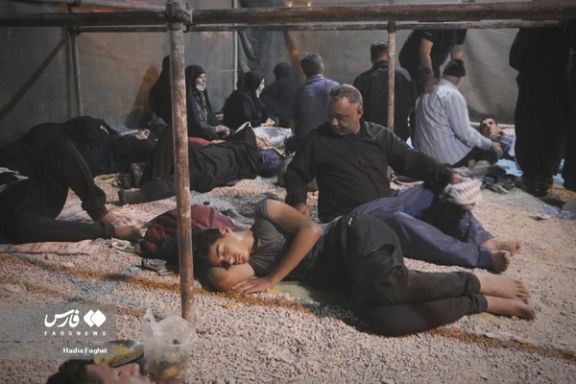
Over a dozen people, including an official of Iran’s Armed Forces, have died in accidents related to the massive Iranian pilgrimage to Iraq’s Karbala, encouraged and supported by the government.
Iran’s Red Crescent Society announced on Saturday that four Arbaeen pilgrims died in the Iraqi city of Hillah after a van overturned.
Moreover, the head of the society said a passenger bus explosion in Iraq's Babylon province has killed at least 11 and injured 30 others. All the dead were Iranian nationals, Tehran's ambassador confirmed.
An official of the Army’s Foundation for the Preservation and Publication of Sacred Defense Works and Values, Taghi Hosseini, also died along with his wife in another accident near the Mehran border crossing.
On Friday, the Red Crescent Society announced that at least nine Iranians died on their way to the Iraqi city of Karbala for the Shiite religious event. Three more Iranians died earlier in the week in Iraq's Wasit Governorate, which borders the Islamic Republic.
The pilgrimage has turned into an embarrassing debacle due to the government’s mismanagement of the event. Pilgrims have been stranded at dangerously overcrowded border checkpoints and on the roads in the past few days.
Social media is full of posts and videos of people complaining about the crowded border crossings with insufficient facilities.
A lawmaker said on Saturday that the government's mismanagement is "evident" in the incidents during the Arbaeen ceremony, blaming authorities, the interior ministry in particular, for the mishaps and mayhem.

Iran’s government is reducing the allocation of cheap gasoline in what appears to be a shortage of fuel and a possible plan to raise government-controlled prices.
Reports in newspapers, websites and in social media indicate that the President Ebrahim Raisi’s administration might be pondering a new round of gasoline price increase, as some say Iran’s daily production has dropped from 107 million liters to 101 million.
The government that controls the distribution of energy and fuel in the country has been offering perhaps the world’s cheapest prices to consumers, with subisdized gasoline going for as little as 22 US cents a gallon.
A similar move to raise prices in November 2019 led to days of nationwide protests and the killing of at least 1.500 protesters.
A hardliner political figure, former lawmaker Hossein-Naghavi Hosseini, said this week that former President Hassan Rouhani should be put on trial for the 2019 nationwide protests.
At the time, the government was criticized by politicians and media for the way it handled both the price rise and the ensuing dangerous unrest that quickly turned into an anti-regime uprising.
In an interview with Didban Iran website on Saturday, September 10, Naghavi Hosseini added that Iran's Supreme Council of National Security was also responsible for the events that followed the price hike.
Naghavi-Hosseini further charged that one of Rouhani's ministers without naming him and said the minister was waiting for a regime change in Iran.
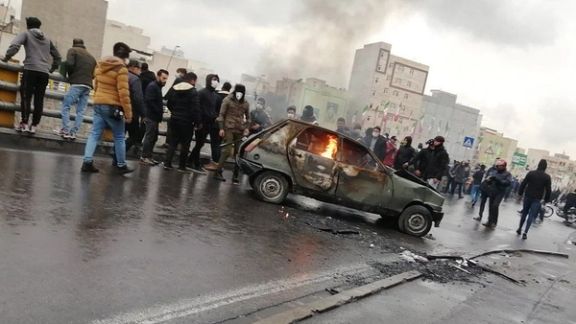
The ex-lawmaker, who is the former spokesman of the parliamentary committee for national security and foreign policy, reiterated that some of Rouhani's ministers were utterly enjoying wat was happening.
Naghavi-Hosseini added that Rouhani should have increased the gasoline price gradually year by year. But he waited for seven years and suddenly tried to make up for his inaction in the seventh year of his presidency.
Vice President Solat Mortazavi on Saturday [September 10] said that President Raisi will under no circumstance allow any increase in the price of gasoline. However, he added that the promise not to raise prices is for up to the end of the current Iranian year on March 20, 2023.
Earlier, Interior Minister Ahmad Vahidi had also denied the rise in the price of gasoline. Vahidi added that "some people spread rumors about an imminent rise in the price of gasoline and the reduction of subsidized gasoline quota, but I deny those rumors."
The denial came while many media reports in Iran said that gas stations sell only 30 liters of gasoline at the subsidized price of 15,000 rials per liter every month and anything beyond that should be bought at 30,000 rials per liter (about $1 or $2.5 per gallon). Meanwhile, many drivers complained on social media that 30 liters of gasoline per month is not enough for them.
An Iran International report in June predicted that Iranians will most likely experience their next shock when the government reduces fuel subsidies and prices rise dramatically, pushing inflation even higher. The report said that the government is once again thinking of raising gasoline prices although officials and members of parliament continue to deny that it will happen this year.
Official estimates in Iran put the total annual subsidy of cheap energy and fuel as high as $60 billion, which is more than the country’s oil export revenues.
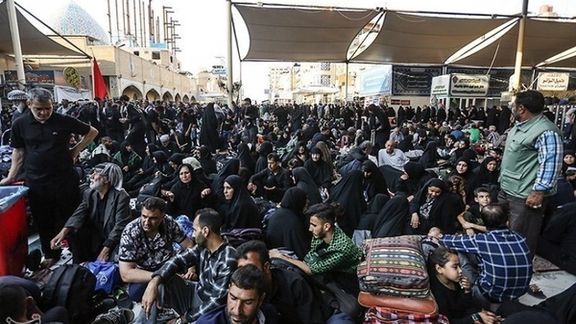
A massive Iranian pilgrimage to Iraq’s Karbala, encouraged and supported by the government was mismanaged and aborted, turning into an embarrassing debacle.
Pilgrims have been stranded at dangerously overcrowded border checkpoints and on the roads in the past few days. According to health authorities many of the pilgrims, including very young infants and the elderly, have been heat stricken due to the very hot and humid weather, or fallen ill with symptoms such as dizziness, nausea, and stomach cramps.
On Friday, Iran and Iraq closed all border crossings, suspending the pilgrimage due to “safety concerns”. Hundreds of thousands who already crossed into Iraq have great difficulty finding local transportation and housing. Photos emerged of thousands of Iranians sleeping in the streets. Hundreds of thousands more who were moving toward the border are confused and have to return home.
Iranian media have reported that dozens of pilgrims were killed or injured in road accidents on the way to the border areas in the past few days. Inside Iraq other hazards may also be awaiting pilgrims: The pro-Iranian Iraqi Shi'ite militia group Hashd al-Shaabi said in a statement Saturday that it had foiled a Islamic State terrorist plot against pilgrims in Karbala on Friday.
According to Iranian media at least two million Iranians had already set out on pilgrimage to Karbala by land and air until Saturday for the Arbaeen ceremony that will take place on September 18. Last Wednesday, first Vice President Mohammad Mokhber said the government expected five million pilgrims to participate in this year’s ceremonies at Iraqi Shiite holy sites.
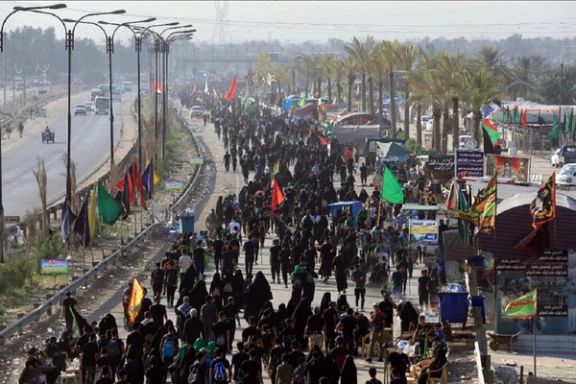
On Thursday Interior Minister Ahmad Vahidi asked Iranians not to leave for Iraq due to the high accumulation of travellers on roads leading to the border checkpoints and Iraqi border authorities’ inability to process such a huge number of pilgrims. The decision to abort the pilgrimage came after weeks of government propaganda and offers of financial assistance to potential pilgrims.
The head of Arbaeen Headquarters, Majid Mir-Ahmadi, said at Mehran border checkpoint in Ilam Province Thursday that Iraqi border crossings were not equipped to serve the huge number of Iranian pilgrims. He advised the elderly, children, and those with medical conditions including respiratory problems not to take the pilgrimage trip.
Mir-Ahmadi said Iraq has not permitted 2,200 buses designated by Iran for transportation of pilgrims inside Iraq to enter the country.
In an interview with the state-run television (IRIB) Thursday, Sohbatollah Rahmani, deputy head ofthe Hajj and Pilgrimage Organization, quoted the head of Arbaeen Headquarters, Majid Mir-Ahmadi, as saying that citizens should try to avoid domestic travel by bus or use their own cars to free as many buses for the transportation of pilgrims as possible.
The Hajj and Pilgrimage Organization is a subset of the Ministry of Culture and Islamic Guidance which is responsible for determining Iran’s pilgrimage policies to Mecca and other holy cities and organizing transportation and other facilities for the pilgrims.
The government is spending hundreds of millions of dollars and huge resources, critics say, to sponsor the Arbaeen pilgrimage to Karbala, the largest annual gathering in the world, to show its Shia ideology is influential both domestically and in the region. The perks offered to Iranians to encourage them to take the pilgrimage include loans, a ration of cheap dollars, and free internet on the road and inside Iraq.
On Saturday the oil ministry announced that it had posted fourteen mobile fuel stations at border checkpoints in southwestern and western provinces to serve public city buses transporting pilgrims.